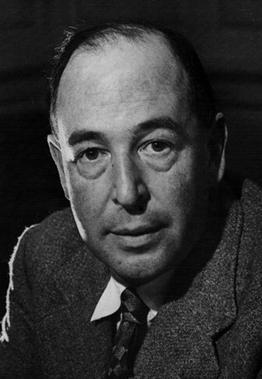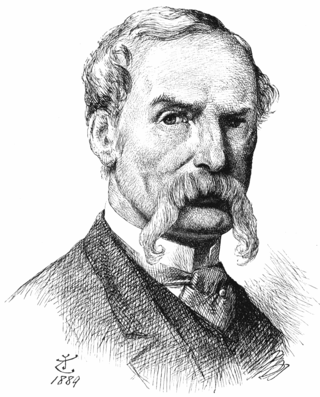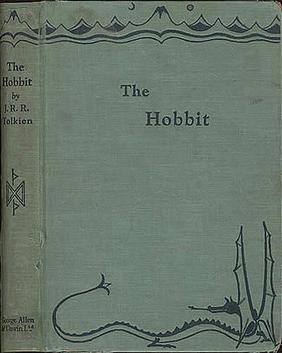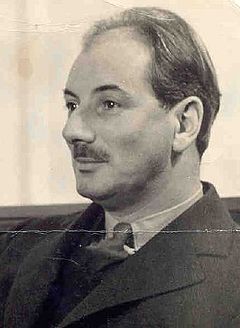
Aristotle was an Ancient Greek philosopher and polymath. His writings cover a broad range of subjects spanning the natural sciences, philosophy, linguistics, economics, politics, psychology and the arts. As the founder of the Peripatetic school of philosophy in the Lyceum in Athens, he began the wider Aristotelian tradition that followed, which set the groundwork for the development of modern science.

Clive Staples Lewis was a British writer, literary scholar, and Anglican lay theologian. He held academic positions in English literature at both Magdalen College, Oxford (1925–1954), and Magdalene College, Cambridge (1954–1963). He is best known as the author of The Chronicles of Narnia, but he is also noted for his other works of fiction, such as The Screwtape Letters and The Space Trilogy, and for his non-fiction Christian apologetics, including Mere Christianity, Miracles, and The Problem of Pain.

Sir John Tenniel was an English illustrator, graphic humourist and political cartoonist prominent in the second half of the 19th century. An alumnus of the Royal Academy of Arts in London, he was knighted for artistic achievements in 1893, the first such honour ever bestowed on an illustrator or cartoonist.

Niccolò di Bernardo dei Machiavelli was a Florentine diplomat, author, philosopher and historian who lived during the Renaissance. He is best known for his political treatise The Prince, written around 1513 but not published until 1532, five years after his death. He has often been called the father of modern political philosophy and political science.
Postmodernism is an intellectual stance or mode of discourse characterized by skepticism towards elements of the Enlightenment worldview. It questions the "grand narratives" of modernism, rejects the certainty of knowledge and stable meaning, and acknowledges the influence of ideology in maintaining political power. The idea of objective claims is dismissed as naïve realism, emphasizing the conditional nature of knowledge. Postmodernism embraces self-referentiality, epistemological relativism, moral relativism, pluralism, irony, irreverence, and eclecticism. It opposes the "universal validity" of binary oppositions, stable identity, hierarchy, and categorization.

The Hobbit, or There and Back Again is a children's fantasy novel by English author J. R. R. Tolkien. It was published in 1937 to wide critical acclaim, being nominated for the Carnegie Medal and awarded a prize from the New York Herald Tribune for best juvenile fiction. The book is recognized as a classic in children's literature and is one of the best-selling books of all time, with over 100 million copies sold.

George Philip Lakoff is an American cognitive linguist and philosopher, best known for his thesis that people's lives are significantly influenced by the conceptual metaphors they use to explain complex phenomena.

Lewis Mumford was an American historian, sociologist, philosopher of technology, and literary critic. Particularly noted for his study of cities and urban architecture, he had a broad career as a writer. He made signal contributions to social philosophy, American literary and cultural history, and the history of technology.
A note is a string of text placed at the bottom of a page in a book or document or at the end of a chapter, volume, or the whole text. The note can provide an author's comments on the main text or citations of a reference work in support of the text.

Arthur Owen Barfield was an English philosopher, author, poet, critic, and member of the Inklings.
A house church or home church is a label used to describe a group of Christians who regularly gather for worship in private homes. The group may be part of a larger Christian body, such as a parish, but some have been independent groups that see the house church as the primary form of Christian community.
A book series is a sequence of books having certain characteristics in common that are formally identified together as a group. Book series can be organized in different ways, such as written by the same author, or marketed as a group by their publisher.

Low technology is simple technology, as opposed to high technology. In addition, low tech is related to the concept of mid-tech, that is a balance between low-tech and high-tech, which combines the efficiency and versatility of high tech with low tech's potential for autonomy and resilience.

The Gospel of the Truth is one of the Gnostic texts from the New Testament apocrypha found in the Nag Hammadi codices ("NHC"). It exists in two Coptic translations, a Subakhmimic rendition surviving almost in full in the first Nag Hammadi codex and a Sahidic in fragments in the twelfth codex.

Sonnet 25 is one of 154 sonnets published by the English playwright and poet William Shakespeare in the Quarto of 1609. It is a part of the Fair Youth sequence.

Technics and Civilization is a 1934 book by American philosopher and historian of technology Lewis Mumford. The book presents the history of technology and its role in shaping and being shaped by civilizations. According to Mumford, modern technology has its roots in the Middle Ages rather than in the Industrial Revolution. It is the moral, economic, and political choices we make, not the machines we use, Mumford argues, that have produced a capitalist industrialized machine-oriented economy, whose imperfect fruits serve the majority so imperfectly.

The Myth of the Machine is a two-volume book by Lewis Mumford that takes an in-depth look at the forces that have shaped modern technology since prehistoric times. The first volume, Technics and Human Development, was published in 1967, followed by the second volume, The Pentagon of Power, in 1970. Mumford shows the parallel developments between human tools and social organization mainly through language and rituals. It is considered a synthesis of many theories Mumford developed throughout his prolific writing career. Volume 2 was a Book-of-the-Month Club selection.

Marxist literary criticism is a theory of literary criticism based on the historical materialism set down by philosopher and economist Karl Marx. Marxist critics argue that even art and literature themselves form social institutions and have specific ideological functions, based on the background and ideology of their authors. The English literary critic and cultural theorist Terry Eagleton defines Marxist criticism this way: "Marxist criticism is not merely a 'sociology of literature', concerned with how novels get published and whether they mention the working class. Its aim is to explain the literary work more fully; and this means a sensitive attention to its forms, styles and, meanings. But it also means grasping those forms styles and meanings as the product of a particular history." In Marxist criticism, class struggle and relations of production are the central instruments in analysis.

Communitas: Means of Livelihood and Ways of Life is a 1947 book on community and city planning by Percival and Paul Goodman. Presented as an illustrated primer on how city planning affects socioeconomic order and citizens' empowerment to better their communities, the book reviews historical and modern approaches to urban planning before proposing three of the Goodmans' own provocative community paradigms.

Herman Melville is a biography of the American author Herman Melville by Lewis Mumford, first published in 1929. Mumford, who felt a close affinity with Melville, gives both an account of the author's life and an interpretation of his works in the book, devoting particular attention to Moby-Dick and the later works published thereafter. The book played a role in the Melville revival of the 1920s, helping to affirm the author's reputation and to indicate connections between his work and later literature. The book was later republished under the title Herman Melville: A Study of His Life and Vision.















